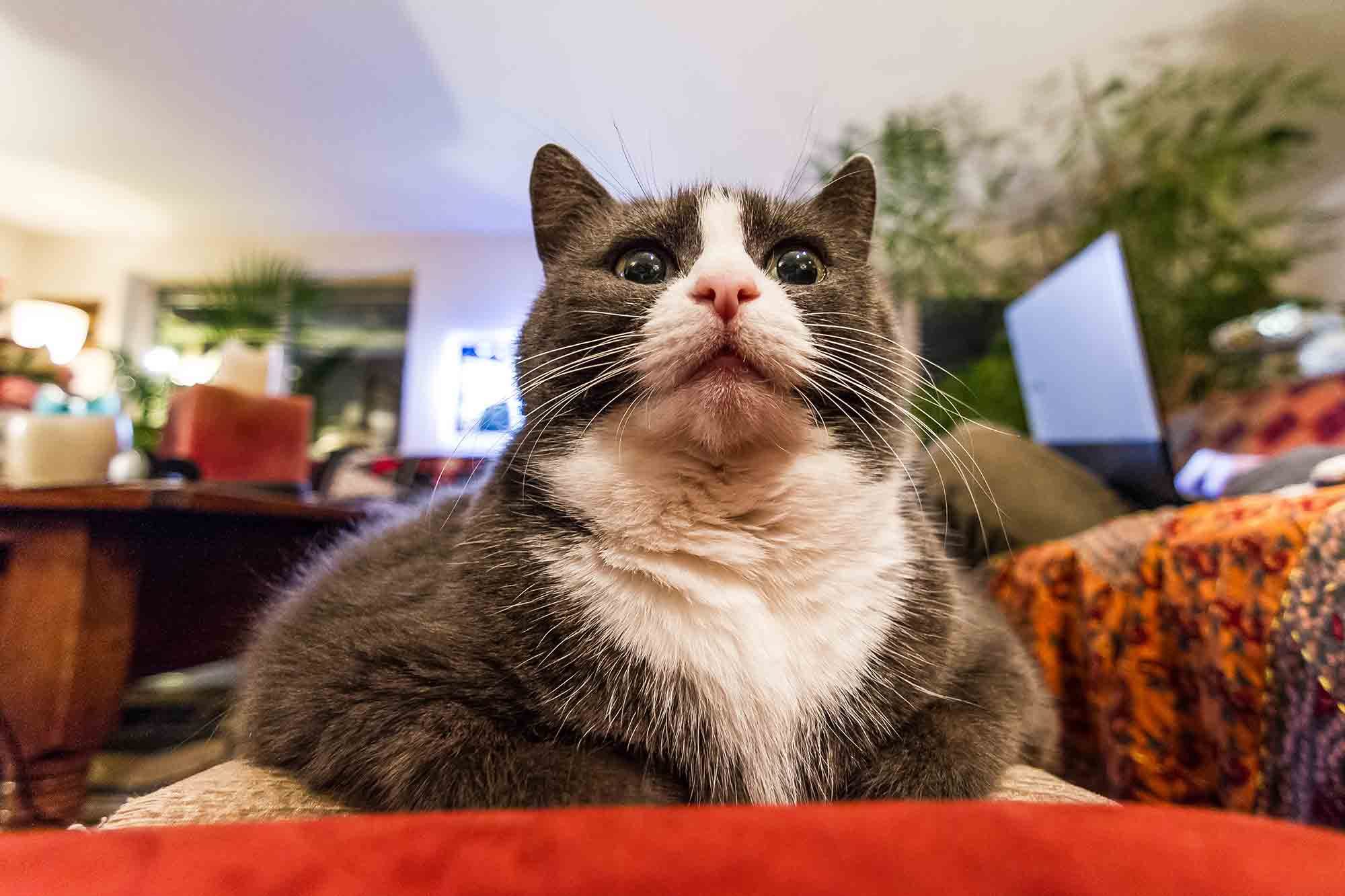 After back-to-back holidays, many of us may be letting out that waistline and thinking about a diet plan in the new year. Our concern about extra weight and its perils isn’t unfounded; obesity is in the headlines as a serious epidemic in our country and, not surprisingly, our pets are catching up with us!
After back-to-back holidays, many of us may be letting out that waistline and thinking about a diet plan in the new year. Our concern about extra weight and its perils isn’t unfounded; obesity is in the headlines as a serious epidemic in our country and, not surprisingly, our pets are catching up with us!
Obesity in pets isn’t something we used to worry about. For many animals, their lives were spent outside, working on the farm or guarding property. More recently, and for many good reasons, pets are now being seen as part of the family, which inevitably includes being privy to more food and treats than ever before. Unfortunately, there are big problems with pets packing on the pounds.
Obesity in Pets
With an estimated 30% of all household pets being overweight, many pet owners don’t have a clear understanding of the effects of obesity in pets. Many still hold on to the belief there’s nothing wrong with a pleasantly plump dog or cat and, in fact, this makes them cuter and more cuddly. In addition, the portions we doll out to our pets have increased significantly over the years.
So what’s the problem with all this? There are actually many health complications that are directly related to being overweight, including:
- Cardiovascular disease
- Increased stress on joints, resulting in injuries or arthritis
- Heat intolerance
- Slower healing and increased risk during surgery
- Decreased lifespan
- Diabetes mellitus
- Respiratory problems as a result of decreased lung capacity
- Increased risk of cancer
- Lower quality of life
Diabetes Mellitus
Diabetes mellitus occurs when the body no longer produces insulin or does so inadequately. Diabetes affects both dogs and cats and is more common among older animals, as well as those who are overweight or obese. It’s also true that certain dog breeds are more at risk of diabetes, such as dachshunds, toy poodles, terriers, and German Shepherds.
Diabetes can cause a number of serious repercussions when left untreated, and pets with this disease often require daily insulin shots and more frequent examinations and lab work. Because diabetes can be serious and costly, both health-wise and financially, prevention is key. And the key to preventing this disease is weight management.
Prevention is Worth a Pound of Cure
Keeping your pet from packing on harmful pounds is as simple as monitoring diet and encouraging exercise. Working with your veterinarian to get the proper diet and exercise regiment suitable for your best friend is a great way to start off the new year. Your veterinarian is also a good source to help you determine the ideal weight for your pet.
Other tips to follow:
- Maintain your pet’s regular wellness exams.
- Adhere to the right diet and portions as recommended by your veterinarian.
- Keep your pet active through daily walking or other forms of exercise.
- Provide toys, games, and other items geared toward indoor exercise.
- Limit treats.
Have you noticed your pet getting a little too fluffy these days? Would you like recommendations for the right diet? Do you have additional questions about obesity in pets? Please call us to schedule an appointment. The Maywood Veterinary Clinic is always here to help!

